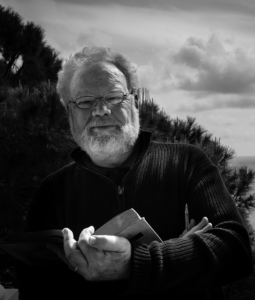Figuring Out the First Amendment: Madison and Jefferson vs. John Adams
It’s one thing to have a 1st Amendment. It is quite another thing to figure out what it means.
During the 1790s, two Founders—Thomas Jefferson and James Madison—followed the interpretation that it meant that political speech in opposition to the government was protected. But John Adams believed it was illegal to criticize the president—and that was the position he held. He used his power to imprison two dozen newspaper editors, under the Sedition Act. Throughout the 1790s, Americans fought over the proper limits of free speech. It was a time similar to our own. We have social media; they had the rise of the political newspaper.
About the Speaker:

Thomas Ricks is a writer and the military history columnist for The New York Times Book Review. He covered the U.S. military for the Washington Post from 2000 through 2008. Until the end of 1999 he had the same beat at the Wall Street Journal, where he was a reporter for 17 years. He reported on U.S. military activities in Somalia, Haiti, Korea, Bosnia, Kosovo, Macedonia, Kuwait, Turkey, Afghanistan, and Iraq. He was part of a Wall Street Journal team that won the Pulitzer Prize for national reporting in 2000 for a series of articles on how the U.S. military might change to meet the new demands of the 21st century. The series is posted here.
Ricks also was part of a Washington Post team that won the 2002 Pulitzer prize for reporting about the beginning of the U.S. counteroffensive against terrorism. Those articles are posted here.
He is the author of seven books. His best known is Fiasco: The American Military Adventure in Iraq, 2003-05, which was a finalist for the Pulitzer Prize in 2007. His second book on that war, The Gamble: General Petraeus and the American Military Adventure in Iraq, 2006-08, was published in 2009. That was followed by The Generals: American Military Command from World War II to Today. Both Fiasco and The Generals were selected for the U.S. Army Chief of Staff’s official reading list. He also wrote Making the Corps, which won the Washington Monthly’s “Political Book of the Year” award. His first novel, A Soldier’s Duty, about the U.S. military intervening in Afghanistan, was published by Random House in June 2001–some four months before the U.S. actually did intervene there. His books have been published in Britain, France, Spain, Italy, Turkey, Bulgaria, Estonia, Russia, Brazil, Korea, Taiwan, Vietnam, and China.
His sixth book was Churchill and Orwell: The Fight for Freedom. His most recent work, First Principles: What America’s Founders Learned from the Greeks and Romans, and How That Shaped Our Country, was published in November 2020, and by the end of that month was on the New York Timesbestsellers list. It was the fifth consecutive book of his to appear on that list.
Born in Massachusetts in 1955, he grew up in New York and Afghanistan and graduated from Yale in 1977. He is married to Mary Catherine Ricks, author of Escape on the Pearl, a history of one of the biggest slave escapes in American history. They have two grown children. For recreation, he enjoys kayaking, sailing, hiking, biking, and reading military history.

